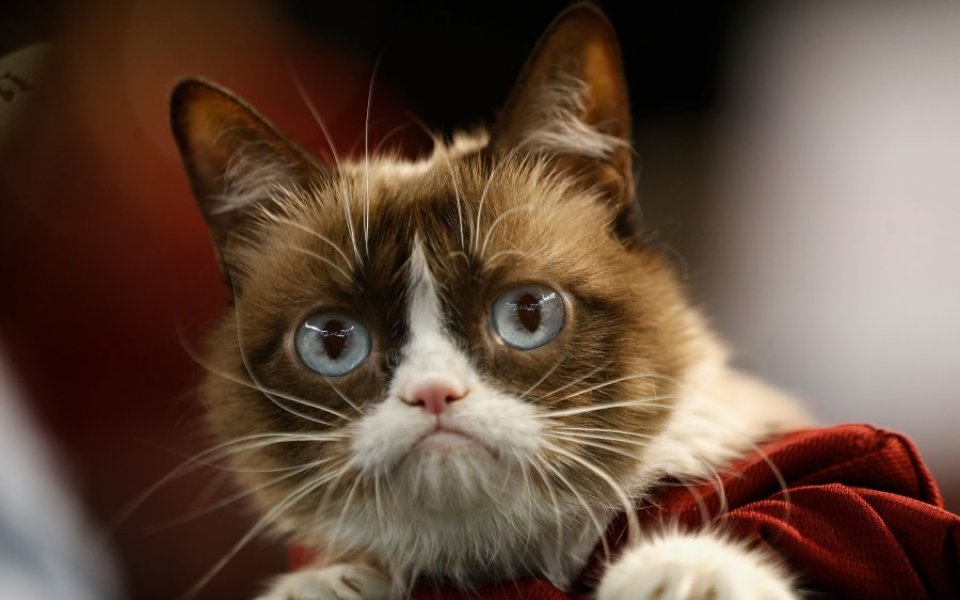Brussels cats are back: But why do we turn to internet cat memes like Grumpy Cat, Lolcats and #BrusselsLockdown in a time of crisis?

Laughing at cats on the internet is nothing new. But using them as a tool to laugh in times of crisis could well be.
Belgian authorities asked locals to avoid posting about police raids via social media for fear that information could aid terrorists, last year. People complied to this potentially aggravating censorship in an unconventional way.
From hovercraft felines to Grumpy Cat as Darth Vader, a quick search for “#BrusselsLockdown” on Twitter returned hundreds of clever cat-related tweets posted during the lockdown.
These posts likely thwarted anyone who would have wanted to use social media to gather factual information about the raids for more nefarious ends.
And once again, Brussels, and the internet, has turned to cats for comfort, after terror attacks rocked the Belgium capital.
Why would the Belgian people turn to fanciful images of kittens and guns in this fear- ridden situation? And why would the images of cats reading military manuals go viral and spread around the world? Social science research provides some potential answers.
First, fear is a natural reaction to unpredictable negative events, like terrorism threats. And the emotion is a strong one that motivates us to do something, anything, to make it go away.
If we can’t find a way to actually escape the threat causing us fear, we typically do mental gymnastics to try change our emotional state. In the case of the Belgians stuck in their homes and unable to take physical action against potential terrorists, posting cat pictures was a way to alleviate the anxiety with some clever wit.
My own work has shown that watching cat videos and looking at cat memes online can make us feel happier and more content. And because cat videos and memes are practically synonymous with the internet, they provided an even better outlet for maintaining mental clarity when both activity and speech were restricted.
That explains why the Belgians created the cats, but not why Twitter users from across the globe shared the images of gut-toting felines.
Other work has shown that media content that evokes positive emotions in consumers is more likely to be shared online than messages that make us cringe. In sharing this constructive and humorous use of nervous energy across the globe, social media users felt connected to each other.
Many studies have demonstrated that even in the short character limit of Twitter, social media can serve as a support group—in this case, providing comfort to those anxious about terrorism.
While media use may be blamed for many social ills, the Brussels lockdown showed that it could also provide a needed moral boost and connect strangers by making them smile.
Monday morning after the Sunday lockdown, the Belgian police responded in the most appropriate way possible.
The federal police posted a picture of a large bowl of food on its Twitter feed as a thank you to the “cats” who aided them the night before with tactical humour strikes.
Unlike fighting fire with fire, the cats of Belgium successfully demonstrated the power of fighting fear with humour.
This article was first published in November 2015